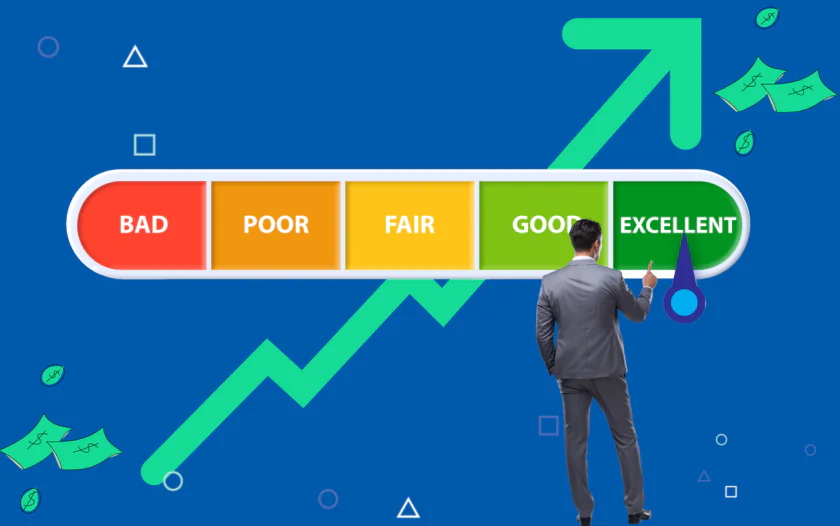Debt is something that you are likely to encounter at some point during your life. From mortgages to car loans to credit card debt, it can appear in many forms.
Incurring debt is often a necessary part of major life investments, however, if you do not manage it properly, it can become a significant burden. Without planning and diligent action, debt can easily spiral out of control and result in much financial hardship and stress.
Whether you’re planning to secure a loan, make a major purchase or want to improve your financial health, you need to understand how to handle debt so that you can enhance your credit score. If you’ve begun looking for ways to manage your debt, with a goal of eliminating it altogether, you’re already on the right track.
In this article, we will examine seven effective strategies to manage your debt and boost your credit score.
Let’s begin!
1) Understand Your Debts
The first step to managing your debt is identifying and understanding what you owe. Create a detailed list of debts including credit card balances, short term loans, and all other financial obligations. Then, note each obligation’s monthly payments, interest rates and due dates.
Understanding your debts is essential if you want to create an effective debt management plan. This step gives you the information to prioritise debts with higher interest rates or debts that can quickly improve your credit score once paid.
2) Prioritise Debt Payments
All debts are not created equally. Different debts come with different interest rates and consequences for non-payment. As such, it is vital to prioritise your debts to manage them more effectively.
When you prioritise high-interest debts, you can save significant amounts in interest payments. This method of putting any extra money towards debts with higher interest rates and making minimum payments to other debts is known as the avalanche method.
If you are unsure how to go about this step, consider seeking professional guidance or working with a financial planning service to optimise your debt repayment efforts.
3) Negotiate With Creditors
If you’re struggling with debt payments, it may be a good idea to contact your creditors and attempt to negotiate more manageable repayment terms.
More often than not, many creditors would be willing to work with you to create a payment plan that can help you better manage your payments. This could include reducing payment amounts, waiving late fees or even lowering interest rates.
By successfully negotiating with creditors, you can make your debts more manageable and prevent the impact of any missed payments on your credit score.
4) Set Up Automatic Payments
Missed payments can result in late fees, which can harm your credit score. Setting up automatic payments for your bills is a simple and effective way to prevent this issue.
By automating your payments, you can ensure that they are made on time every month. This helps you build a history of timely payments, a crucial factor when it comes to credit scoring.
Moreover, many creditors offer a slight interest rate deduction with automatic payment programs, providing savings and convenience.
5) Improve Your Credit Utilisation Ratio
Another important factor in improving your credit score is managing your credit utilisation ratio. This refers to the percentage of your credit limit that you’re using. Typically, it’s best to keep this ratio under 30%.
If you want to lower your utilisation, avoid maxing out any of your cards and pay down balances. If possible, request a higher credit limit for your existing accounts. This would instantly reduce your utilisation ratio as long as your spending does not increase.
6) Review Your Credit Report Regularly
To manage your debt and improve your credit score, you need to review your credit report regularly. By doing so, you can check for any inaccuracies or fraudulent activities that may be impacting your score.
It’s important to ensure that your credit activities are always reported accurately and correct any errors as soon as you can.
7) Take Advantage of Financial Counseling
If you’re finding your debt overwhelming, consider taking assistance from a credit counselling service. These services can give you personalised advice regarding how to manage your debt, make a budget and boost your credit score.
In fact, many non-profit financial counselling services offer helpful sessions at little to no cost, giving you the guidance you need without increasing financial strain.
To Wrap Up
Effective debt management is essential if you want to maintain your financial health. It helps prevent high interest, late fees and irreparable damage to your credit score.
Both smartly managing debt and improving your credit score are key components to achieving financial freedom and stability. Managing your debts gives much peace of mind and allows you to rest easy knowing that your financial obligations are under control.
By understanding and taking control of your debts with the above strategies, you can put yourself on the right track and work towards securing a healthy financial future.
















